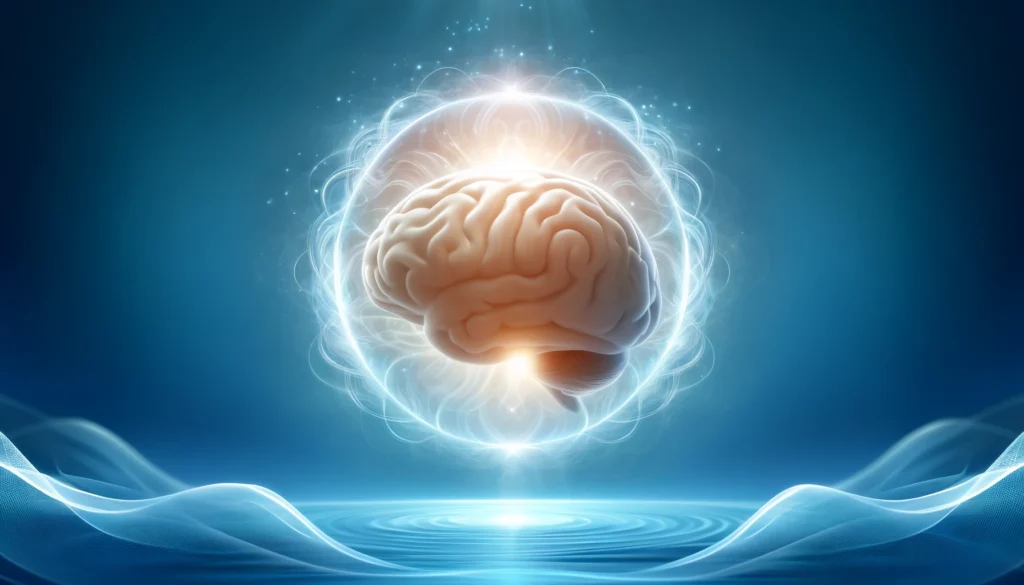Introduction
In a world increasingly dominated by rapid-fire digital interactions, mounting stress, and overwhelming responsibilities, the pursuit of mental clarity and cognitive resilience has never been more critical. Amidst the plethora of wellness trends, one practice stands out for its simplicity, accessibility, and profound efficacy: the two-minute meditation. While traditional meditation techniques often require significant time commitments, recent research suggests that even a brief, two-minute guided meditation can yield remarkable benefits for brain health and longevity. Scientific studies continue to demonstrate that this short but impactful practice fosters cognitive enhancement, emotional well-being, and long-term neuroprotective effects. This article delves into the empirical evidence supporting two-minute meditation as a scientifically validated tool for optimizing brain function and extending longevity.
You may also like: How to Improve Focus and Concentration: Proven Techniques for Boosting Mental Clarity and Productivity.
The Neuroscience Behind Meditation and Cognitive Function
The relationship between meditation and brain health is well-documented in neuroscience literature, with studies highlighting its capacity to influence neuroplasticity, improve attention regulation, and mitigate cognitive decline. When individuals engage in a two-minute meditation, they activate neural pathways associated with focused attention and relaxation, such as the prefrontal cortex and the default mode network (DMN). These regions play pivotal roles in executive function, self-awareness, and emotional regulation. Additionally, meditation has been shown to increase the density of gray matter in the hippocampus, a brain structure crucial for memory formation and spatial navigation. Furthermore, the reduction of cortisol—a stress hormone that can impair synaptic function—enhances neuroprotection, thereby supporting long-term cognitive resilience. These neuroscientific insights affirm that even short bursts of meditation contribute to the preservation and enhancement of brain function.
The Impact of a Two-Minute Meditation on Stress Reduction
Chronic stress is a pervasive issue that accelerates brain aging, weakens immune function, and heightens susceptibility to neurodegenerative conditions such as Alzheimer’s and Parkinson’s disease. A two-minute guided meditation provides a rapid and effective intervention to counteract the deleterious effects of stress by engaging the parasympathetic nervous system. This activation triggers the relaxation response, leading to decreased heart rate, lower blood pressure, and reduced levels of inflammatory cytokines. Moreover, meditation encourages mindfulness, fostering a greater sense of emotional regulation and psychological resilience. By cultivating a practice of brief, intentional stillness, individuals can mitigate stress-related damage to the brain while simultaneously enhancing their ability to navigate life’s challenges with equanimity.

Enhancing Cognitive Performance and Focus Through Brief Meditation
The cognitive benefits of meditation are well-documented, with research illustrating its efficacy in bolstering attention span, working memory, and problem-solving abilities. A two-minute meditation functions as a cognitive reset, allowing individuals to momentarily disengage from external distractions and recalibrate their mental faculties. The practice strengthens neural connections within the anterior cingulate cortex, a region associated with sustained attention and error detection. Additionally, meditation has been linked to improved reaction times, greater cognitive flexibility, and enhanced creative problem-solving skills. These cognitive enhancements not only benefit immediate task performance but also contribute to long-term brain health by reinforcing synaptic efficiency and adaptive learning mechanisms.
The Role of Meditation in Longevity and Cellular Health
Emerging research suggests that meditation exerts profound effects at the cellular level, influencing key biomarkers of aging and longevity. One of the most compelling findings is its impact on telomere length—the protective caps at the ends of chromosomes that determine cellular lifespan. Chronic stress and oxidative damage accelerate telomere attrition, leading to premature aging and increased risk of age-related diseases. However, meditation has been associated with increased telomerase activity, an enzyme responsible for maintaining telomere integrity. Furthermore, meditation modulates gene expression related to inflammation, immune function, and stress resilience. These molecular adaptations underscore the role of a two-minute meditation in promoting longevity by fostering cellular repair and reducing biological aging markers.

Implementing a Two-Minute Guided Meditation into Daily Life
Given the immense benefits of brief meditation, incorporating a two-minute guided meditation into daily routines is both practical and impactful. Whether practiced upon waking, during a midday break, or before bedtime, this short intervention requires minimal effort yet yields substantial rewards. A simple two-minute meditation can be structured as follows:
- Find a quiet space and assume a comfortable posture.
- Close your eyes and take a deep breath, allowing yourself to settle into the present moment.
- Focus on your breath, noticing the sensation of inhalation and exhalation without judgment.
- If thoughts arise, acknowledge them and gently return to the rhythm of your breath.
- After two minutes, gradually open your eyes and return to your surroundings with renewed clarity.
By engaging in this practice consistently, individuals can cultivate mindfulness, enhance cognitive function, and support long-term brain health.

The Synergistic Effects of Meditation and Lifestyle Factors
While a two-minute meditation is a potent tool for cognitive enhancement and longevity, its effects are amplified when combined with other lifestyle interventions. Nutritional choices, physical activity, and sleep hygiene all play integral roles in brain health and aging. A diet rich in antioxidants, omega-3 fatty acids, and polyphenols provides essential nutrients for neuroprotection. Regular physical exercise promotes cerebral blood flow, enhancing neurogenesis and synaptic plasticity. Additionally, prioritizing sleep ensures adequate brain detoxification and memory consolidation. When meditation is integrated into a holistic wellness regimen, its benefits extend beyond momentary relaxation, fostering comprehensive brain resilience and longevity.

Frequently Asked Questions (FAQ) on Two-Minute Meditation
1. Can a two-minute meditation really have a significant impact on brain health?
Absolutely. While longer meditation sessions provide extensive benefits, research has shown that even a two-minute meditation can activate key brain regions associated with relaxation, focus, and emotional regulation. Short bursts of mindfulness can help reduce cortisol levels, increase neural connectivity, and enhance cognitive performance. Over time, consistent practice of a two-minute guided meditation can improve mental clarity, boost problem-solving skills, and reinforce positive neural pathways. By engaging in this practice daily, individuals create a cumulative effect that supports long-term brain health and resilience.
2. How does a two-minute meditation affect stress and anxiety levels?
A two-minute meditation is a quick yet effective tool for stress management, particularly in high-pressure environments. By activating the parasympathetic nervous system, it helps slow the heart rate, lower blood pressure, and shift the body out of fight-or-flight mode. When practiced regularly, a two-minute guided meditation can improve emotional regulation, making it easier to manage daily stressors. Additionally, it fosters mindfulness, allowing individuals to become more aware of their triggers and reactions. This heightened awareness can prevent stress from escalating, promoting a sense of inner balance and control.
3. Can a two-minute meditation improve sleep quality?
Yes, engaging in a two-minute meditation before bedtime can promote relaxation and prepare the mind for restful sleep. Meditation helps lower stress hormones like cortisol, which are often responsible for sleep disturbances. A two-minute guided meditation focusing on deep breathing and mindfulness can reduce mental chatter, allowing the brain to transition smoothly into sleep mode. Over time, this practice helps regulate the body’s circadian rhythm, making it easier to fall asleep and stay asleep. Even those who struggle with chronic insomnia may find that consistent short meditation sessions improve overall sleep quality.
4. Is a two-minute meditation beneficial for focus and productivity?
Absolutely. A two-minute meditation serves as a cognitive reset, clearing mental clutter and enhancing focus. By practicing mindfulness for just a short period, individuals train their brains to sustain attention for longer periods. This technique is particularly useful in high-performance settings such as workplaces, where quick mental refreshers can lead to better decision-making and problem-solving. Additionally, integrating a two-minute guided meditation into the workday can reduce mental fatigue and enhance creativity, leading to more effective and innovative thinking.
5. How does a two-minute meditation support longevity?
Meditation has been linked to increased telomerase activity, an enzyme responsible for maintaining the protective caps at the end of chromosomes, which play a key role in cellular aging. A two-minute meditation can help reduce oxidative stress and inflammation—two major contributors to aging and chronic disease. Additionally, regular meditation fosters healthy blood circulation, supports immune function, and lowers systemic stress levels, all of which contribute to longevity. By making this simple practice a daily habit, individuals can positively influence their biological aging process and improve overall well-being.
6. Can a two-minute meditation be as effective as a longer session?
While longer meditation sessions provide deeper states of mindfulness, a two-minute meditation still delivers meaningful benefits. Neuroscientific studies suggest that even brief meditation practices can activate the brain’s default mode network (DMN), which is associated with self-reflection and relaxation. Regular short sessions also help form a habit of mindfulness, making it easier to extend meditation duration over time. The key is consistency—practicing a two-minute guided meditation multiple times a day can be as impactful as a single long session. Additionally, short meditations are more accessible for beginners, making it easier to sustain a regular practice.
7. What is the best time of day to practice a two-minute meditation?
The beauty of a two-minute meditation is its flexibility—it can be practiced at any time of the day. Many people find that starting the morning with meditation sets a positive tone for the day, enhancing focus and reducing stress. A midday session can serve as a mental reset, especially during busy work hours or high-stress situations. Evening meditations, particularly a two-minute guided meditation, can help the body unwind and prepare for restful sleep. Ultimately, the best time is whenever an individual can consistently integrate the practice into their daily routine.
8. Can a two-minute meditation help with emotional regulation?
Yes, meditation has been shown to enhance emotional intelligence by improving self-awareness and impulse control. A two-minute meditation trains the mind to observe thoughts and emotions without immediate reaction, fostering greater emotional stability. This practice strengthens the prefrontal cortex, which governs rational decision-making and emotional processing. Over time, individuals who practice a two-minute guided meditation develop a heightened ability to respond to stressful situations with composure rather than impulsivity. This skill is particularly beneficial in interpersonal relationships, workplace dynamics, and conflict resolution.
9. How can beginners incorporate a two-minute meditation into their routine?
For beginners, starting with a two-minute meditation is a practical and approachable way to build a meditation habit. It can be done in a quiet space, during a work break, or even while commuting (as long as it’s safe to do so). A simple technique involves focusing on deep breathing, inhaling through the nose for a count of four, holding for four seconds, and exhaling for four seconds. Using a two-minute guided meditation app can also provide structured guidance, making it easier to stay on track. As consistency builds, individuals may naturally feel inclined to extend their meditation sessions for even greater benefits.
10. Are there different types of two-minute meditations, and how do they vary?
Yes, there are multiple forms of two-minute meditations, each catering to different needs and preferences. A mindfulness meditation focuses on present-moment awareness, helping individuals observe thoughts without attachment. A breath-focused meditation uses deep breathing techniques to calm the nervous system and enhance concentration. A loving-kindness meditation fosters positive emotions by encouraging thoughts of compassion and gratitude. Guided meditations, where a recorded voice provides step-by-step relaxation prompts, are particularly helpful for beginners. By exploring different styles, individuals can find the most effective two-minute meditation for their specific goals and lifestyle.
Conclusion: The Lasting Impact of Two-Minute Meditation on Brain Health
The science-backed benefits of a two-minute meditation for brain health and longevity underscore its value as a simple yet powerful practice. By engaging in brief meditation sessions, individuals can enhance cognitive function, reduce stress, support cellular health, and cultivate resilience against age-related decline. As neuroscience continues to unravel the profound mechanisms underlying meditation’s effects, it becomes increasingly evident that this practice holds the potential to revolutionize cognitive wellness. With minimal time investment and maximal rewards, a two-minute meditation serves as an accessible and effective strategy for optimizing brain health and promoting longevity. Embracing this practice today can yield lasting benefits, ensuring a sharper mind and a healthier future.
mindfulness exercises, stress relief techniques, cognitive wellness, mental clarity practices, brain health strategies, quick relaxation methods, guided relaxation techniques, meditation for longevity, neuroplasticity training, emotional resilience practices, daily mindfulness habits, focus enhancement methods, workplace stress management, deep breathing exercises, cognitive enhancement tips, short meditation benefits, holistic brain care, meditation for better sleep, stress reduction therapy, self-care mindfulness.
Further Reading:
Meditation and Its Mental and Physical Health Benefits
12 science-based benefits of meditation
Why a Meditation Practice Is Key to Longevity
Disclaimer
The information contained in this article is provided for general informational purposes only and is not intended to serve as medical, legal, or professional advice. While Health11News strives to present accurate, up-to-date, and reliable content, no warranty or guarantee, expressed or implied, is made regarding the completeness, accuracy, or adequacy of the information provided. Readers are strongly advised to seek the guidance of a qualified healthcare provider or other relevant professionals before acting on any information contained in this article. Health11News, its authors, editors, and contributors expressly disclaim any liability for any damages, losses, or consequences arising directly or indirectly from the use, interpretation, or reliance on any information presented herein. The views and opinions expressed in this article are those of the author(s) and do not necessarily reflect the official policies or positions of Health11News.


